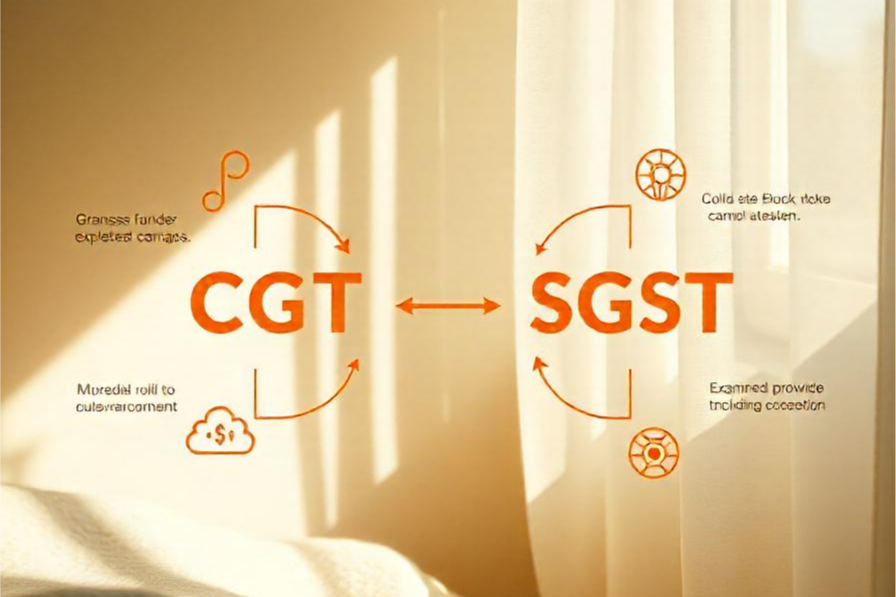As an experienced Chartered Accountant with 4 years in the field, I’ve often seen businesses grapple with the choice between Normal GST Registration and the Composition Scheme. Each option comes with its own benefits and limitations, and the decision depends on various parameters that align with your business goals, operations, and structure. Here’s an easy-to-understand guide to help you make the best choice.
Understanding the Basics
1. Normal GST Registration:
- Suitable for businesses of any size.
- Allows the collection of GST from customers and availing Input Tax Credit (ITC).
- Requires detailed tax filings and compliance.
- Applicable to businesses with turnover above the prescribed limit (₹20 lakh or ₹40 lakh depending on the state and type of business).
2. Composition Scheme:
- Designed for small businesses with turnover up to ₹1.5 crore (₹75 lakh for certain states).
- Involves paying a fixed percentage of turnover as tax.
- No Input Tax Credit allowed.
- Limited compliance and filing requirements.
- Cannot supply interstate goods or services and has restrictions on business types (e.g., service providers other than restaurants have limited eligibility).
Parameters to Consider
1. Annual Turnover:
- If your turnover exceeds ₹1.5 crore, you’re not eligible for the Composition Scheme.
- For businesses below the turnover limit, Composition can be an attractive option, provided other conditions align.
2. Nature of Business:
- Composition Scheme is ideal for businesses with limited customers who do not require GST invoices (e.g., small retailers, manufacturers).
- If your business deals with large corporate clients or export customers who demand GST invoices and ITC, Normal GST Registration is the better choice.
3. Input Tax Credit (ITC):
- Businesses with significant purchases and input GST (e.g., manufacturers, wholesale traders) benefit from ITC under Normal Registration.
- If input costs and ITC claims are negligible, the Composition Scheme could reduce tax liabilities.
4. Compliance and Filing Burden:
- The Composition Scheme requires quarterly filing and simplified compliance, making it a stress-free option for small businesses.
- Normal GST Registration, while offering ITC benefits, involves monthly filings (GSTR-1, GSTR-3B) and strict record-keeping.
5. Customer Base and Pricing Strategy:
- Under the Composition Scheme, you cannot collect GST from customers directly. This can be advantageous for price-sensitive markets.
- If your customers are comfortable with GST-inclusive pricing, Normal Registration is more suitable.
6. Business Expansion Plans:
- If you plan to expand across states or enter exports, Normal Registration is mandatory as the Composition Scheme restricts interstate supplies.
- For localized, small-scale operations, the Composition Scheme is sufficient.
7. Sector and Legal Restrictions:
- The Composition Scheme excludes service providers except for restaurants. Businesses in specialized service sectors must opt for Normal Registration.
- Evaluate your eligibility carefully based on government regulations.
Comparative Table: Normal GST Registration vs. Composition Scheme
Parameter | Normal GST Registration | Composition Scheme |
Turnover Limit | No limit | Up to ₹1.5 crore |
ITC Benefits | Available | Not available |
Compliance | Monthly filings | Quarterly filings |
Tax Rate | Based on product/service category | Fixed percentage on turnover |
Invoicing | GST-compliant invoices | Non-GST invoices |
Customer Type | GST-compliant clients | End consumers/price-sensitive clients |
Interstate Supply | Permitted | Not permitted |
Business Complexity | Medium to high | Low |
Recommendations
1. Choose Normal GST Registration if:
- Your business has high turnover and frequent interstate transactions.
- Input costs and ITC are significant contributors to your profitability.
- Your customers expect GST invoices for claiming their own ITC.
2. Opt for the Composition Scheme if:
- Your operations are small, local, and focused on end consumers.
- You want simplified compliance with minimal filing.
- Your customers are price-sensitive and GST compliance isn’t a dealbreaker.
Final Thoughts
The decision between Normal GST Registration and the Composition Scheme is not one-size-fits-all. It depends on your turnover, nature of business, customer expectations, and operational preferences. Evaluate these parameters carefully and consult a professional if needed to make an informed decision that aligns with your business goals.






